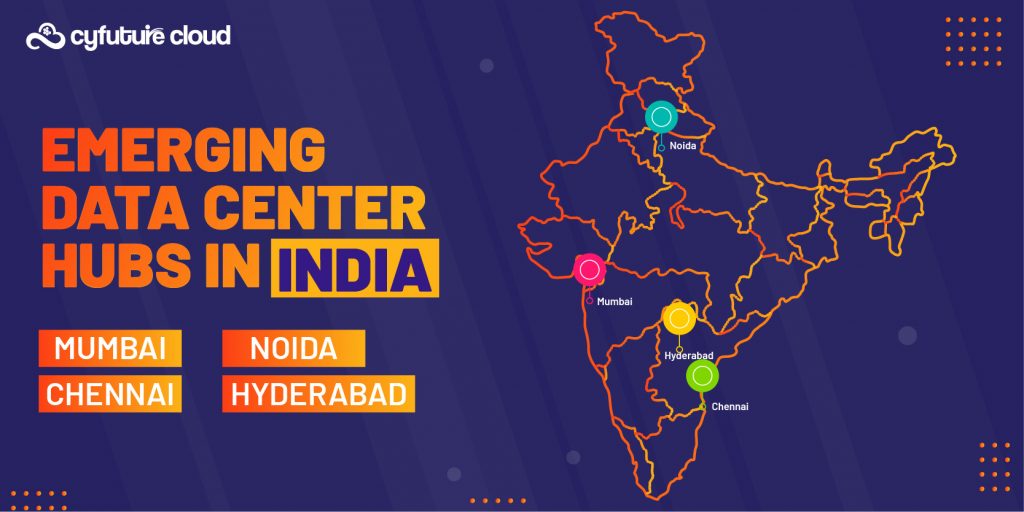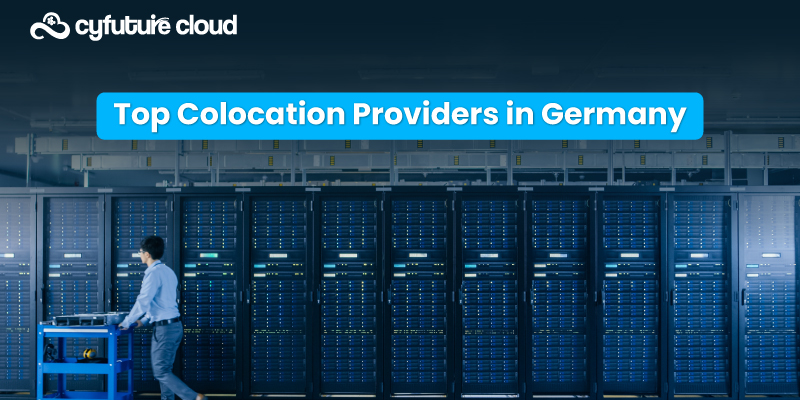Get 69% Off on Cloud Hosting : Claim Your Offer Now!
- Products
-
Compute
Compute
- Predefined TemplatesChoose from a library of predefined templates to deploy virtual machines!
- Custom TemplatesUse Cyfuture Cloud custom templates to create new VMs in a cloud computing environment
- Spot Machines/ Machines on Flex ModelAffordable compute instances suitable for batch jobs and fault-tolerant workloads.
- Shielded ComputingProtect enterprise workloads from threats like remote attacks, privilege escalation, and malicious insiders with Shielded Computing
- GPU CloudGet access to graphics processing units (GPUs) through a Cyfuture cloud infrastructure
- vAppsHost applications and services, or create a test or development environment with Cyfuture Cloud vApps, powered by VMware
- Serverless ComputingNo need to worry about provisioning or managing servers, switch to Serverless Computing with Cyfuture Cloud
- HPCHigh-Performance Computing
- BaremetalBare metal refers to a type of cloud computing service that provides access to dedicated physical servers, rather than virtualized servers.
-
Storage
Storage
- Standard StorageGet access to low-latency access to data and a high level of reliability with Cyfuture Cloud standard storage service
- Nearline StorageStore data at a lower cost without compromising on the level of availability with Nearline
- Coldline StorageStore infrequently used data at low cost with Cyfuture Cloud coldline storage
- Archival StorageStore data in a long-term, durable manner with Cyfuture Cloud archival storage service
-
Database
Database
- MS SQLStore and manage a wide range of applications with Cyfuture Cloud MS SQL
- MariaDBStore and manage data with the cloud with enhanced speed and reliability
- MongoDBNow, store and manage large amounts of data in the cloud with Cyfuture Cloud MongoDB
- Redis CacheStore and retrieve large amounts of data quickly with Cyfuture Cloud Redis Cache
-
Automation
Automation
-
Containers
Containers
- KubernetesNow deploy and manage your applications more efficiently and effectively with the Cyfuture Cloud Kubernetes service
- MicroservicesDesign a cloud application that is multilingual, easily scalable, easy to maintain and deploy, highly available, and minimizes failures using Cyfuture Cloud microservices
-
Operations
Operations
- Real-time Monitoring & Logging ServicesMonitor & track the performance of your applications with real-time monitoring & logging services offered by Cyfuture Cloud
- Infra-maintenance & OptimizationEnsure that your organization is functioning properly with Cyfuture Cloud
- Application Performance ServiceOptimize the performance of your applications over cloud with us
- Database Performance ServiceOptimize the performance of databases over the cloud with us
- Security Managed ServiceProtect your systems and data from security threats with us!
- Back-up As a ServiceStore and manage backups of data in the cloud with Cyfuture Cloud Backup as a Service
- Data Back-up & RestoreStore and manage backups of your data in the cloud with us
- Remote Back-upStore and manage backups in the cloud with remote backup service with Cyfuture Cloud
- Disaster RecoveryStore copies of your data and applications in the cloud and use them to recover in the event of a disaster with the disaster recovery service offered by us
-
Networking
Networking
- Load BalancerEnsure that applications deployed across cloud environments are available, secure, and responsive with an easy, modern approach to load balancing
- Virtual Data CenterNo need to build and maintain a physical data center. It’s time for the virtual data center
- Private LinkPrivate Link is a service offered by Cyfuture Cloud that enables businesses to securely connect their on-premises network to Cyfuture Cloud's network over a private network connection
- Private CircuitGain a high level of security and privacy with private circuits
- VPN GatewaySecurely connect your on-premises network to our network over the internet with VPN Gateway
- CDNGet high availability and performance by distributing the service spatially relative to end users with CDN
-
Media
-
Analytics
Analytics
-
Security
Security
-
Network Firewall
- DNATTranslate destination IP address when connecting from public IP address to a private IP address with DNAT
- SNATWith SNAT, allow traffic from a private network to go to the internet
- WAFProtect your applications from any malicious activity with Cyfuture Cloud WAF service
- DDoSSave your organization from DoSS attacks with Cyfuture Cloud
- IPS/ IDSMonitor and prevent your cloud-based network & infrastructure with IPS/ IDS service by Cyfuture Cloud
- Anti-Virus & Anti-MalwareProtect your cloud-based network & infrastructure with antivirus and antimalware services by Cyfuture Cloud
- Threat EmulationTest the effectiveness of cloud security system with Cyfuture Cloud threat emulation service
- SIEM & SOARMonitor and respond to security threats with SIEM & SOAR services offered by Cyfuture Cloud
- Multi-Factor AuthenticationNow provide an additional layer of security to prevent unauthorized users from accessing your cloud account, even when the password has been stolen!
- SSLSecure data transmission over web browsers with SSL service offered by Cyfuture Cloud
- Threat Detection/ Zero DayThreat detection and zero-day protection are security features that are offered by Cyfuture Cloud as a part of its security offerings
- Vulnerability AssesmentIdentify and analyze vulnerabilities and weaknesses with the Vulnerability Assessment service offered by Cyfuture Cloud
- Penetration TestingIdentify and analyze vulnerabilities and weaknesses with the Penetration Testing service offered by Cyfuture Cloud
- Cloud Key ManagementSecure storage, management, and use of cryptographic keys within a cloud environment with Cloud Key Management
- Cloud Security Posture Management serviceWith Cyfuture Cloud, you get continuous cloud security improvements and adaptations to reduce the chances of successful attacks
- Managed HSMProtect sensitive data and meet regulatory requirements for secure data storage and processing.
- Zero TrustEnsure complete security of network connections and devices over the cloud with Zero Trust Service
- IdentityManage and control access to their network resources and applications for your business with Identity service by Cyfuture Cloud
-
-
Compute
- Solutions
-
Solutions
Solutions
-
 Cloud
Hosting
Cloud
Hosting
-
 VPS
Hosting
VPS
Hosting
-
GPU Cloud
-
 Dedicated
Server
Dedicated
Server
-
 Server
Colocation
Server
Colocation
-
 Backup as a Service
Backup as a Service
-
 CDN
Network
CDN
Network
-
 Window
Cloud Hosting
Window
Cloud Hosting
-
 Linux
Cloud Hosting
Linux
Cloud Hosting
-
Managed Cloud Service
-
Storage as a Service
-
 VMware
Public Cloud
VMware
Public Cloud
-
 Multi-Cloud
Hosting
Multi-Cloud
Hosting
-
 Cloud
Server Hosting
Cloud
Server Hosting
-
 Bare
Metal Server
Bare
Metal Server
-
 Virtual
Machine
Virtual
Machine
-
 Magento
Hosting
Magento
Hosting
-
Remote Backup
-
 DevOps
DevOps
-
 Kubernetes
Kubernetes
-
 Cloud
Storage
Cloud
Storage
-
NVMe Hosting
-
 DR
as s Service
DR
as s Service
-
-
Solutions
- Marketplace
- Pricing
- Resources
- Resources
-
By Product
Use Cases
-
By Industry
- Company
-
Company
Company
-
Company
Data Centers in India: Growth, Challenges & Opportunities in Data Center Industry
Table of Contents
- Current State of Data Centers in India
- Major Takeaways on Data Centers in India
- Challenges Facing by Data Centers in India
- Data Center Challenges and Solutions in Cloud Computing
- Opportunities for Growth in Indian Data Centers
- The data center industry in India moving towards Green Data Centers
- Frequently Asked Questions
India is one of the fastest-growing economies in the world, and as businesses continue to expand, there has been an increasing need for reliable and scalable data center infrastructure. Data centers are critical to businesses that rely on technology, and they play a vital role in powering the digital economy. In this blog, we will explore the current state of data centers in India, data center challenges and solutions in cloud computing:
Current State of Data Centers in India
The Indian data center market is rapidly growing, and it is expected to reach a market size of $4.5 billion by 2025, growing at a CAGR of 12%. The demand for data center infrastructure is primarily driven by the growth of cloud computing, big data, and the internet of things (IoT).
The Indian government’s push toward digitalization has also played a significant role in the growth of data centers in the country. Initiatives like Digital India, Make in India, and Smart Cities have led to an increase in the adoption of technology and the need for robust data center infrastructure.
Currently, there are several data center operators in India. These operators provide a range of services, including colocation, cloud hosting, and managed-to-host. However, the majority of data center services are concentrated in major metropolitan areas like Mumbai, Delhi, and Bangalore.
Major Takeaways on Data Centers in India

- According to a report by JLL, the Indian data center industry is expected to reach a market size of $4.5 billion by 2025, growing at a CAGR of 9.9% from 2020 to 2025.
- The COVID-19 pandemic has accelerated the growth of the Indian data center industry, as more businesses have moved online and are relying on digital infrastructure.
- The government of India has launched several initiatives to promote the growth of the data center industry, including the National Data Center Policy and the Data Centre Incentivization Scheme.
- Major global data center companies have announced plans to expand their presence in India in recent years.
- The cities of Mumbai, Chennai, Noida, and Hyderabad are emerging as major data center hubs in India, due to their favorable business environment and availability of power and connectivity.
Challenges Facing by Data Centers in India
Despite the rapid growth of data centers in Noida, there are several challenges facing the industry. One of the biggest challenges is the lack of an adequate power supply. The power supply in India is unreliable, and power outages are common. This can be a significant problem for data centers that require continuous power to operate.
To overcome this challenge, data center operators in India have been investing in backup power systems, including diesel generators and UPS systems. However, these systems are expensive to install and maintain, which can drive up the cost of data center services.
Another challenge facing data centers in India is the high cost of real estate. The cost of land and property in major cities like Mumbai and Bangalore is very high, making it expensive to build and operate data centers in these areas. This can make it challenging for data center operators to provide affordable services to their customers.
Finally, there is a shortage of skilled personnel in the data center industry in India. Data center operators require specialized skills in areas like networking, security, and server management. However, there are not enough trained professionals to meet the demand. This can lead to delays in the deployment of new data center services and can also impact the quality of services provided.
Data Center Challenges and Solutions in Cloud Computing
| Data Center Challenge | Solution in Cloud Computing |
|---|---|
| Scalability | Utilize cloud’s elastic resources to scale infrastructure on-demand. |
| High Operational Costs | Cost-effective pay-as-you-go models, reducing upfront investments. |
| Hardware Maintenance | Offloading hardware maintenance to cloud service providers. |
| Security & Compliance | Enhanced security measures, compliance frameworks in cloud platforms. |
| Data Redundancy & Backup | Automated backup, redundancy, and disaster recovery in cloud. |
| Resource Optimization | Efficient resource utilization through virtualization and pooling. |
| Performance & Latency | Proximity-based data centers, Content Delivery Networks (CDNs). |
| Flexibility & Agility | Agility through automated provisioning, rapid deployment in cloud. |
| Environmental Impact & Sustainability | Cloud providers with green initiatives, efficient resource utilization. |
Opportunities for Growth in Indian Data Centers
Despite the challenges facing the data center industry in India, there are several growth opportunities. One of the biggest opportunities is the adoption of edge computing. Edge computing involves bringing computing power closer to the source of data, which can reduce latency and improve the performance of applications.
Edge computing is particularly relevant in India, where there are many remote areas with poor connectivity. By deploying edge computing infrastructure in these areas, businesses can provide better services to their customers, even in areas with limited connectivity.
Another opportunity for growth in the data center industry is the adoption of renewable energy. Data centers in India require a significant amount of power to operate, which can be a significant source of carbon emissions. By adopting renewable energy sources like solar and wind, data centers in India operators can reduce their carbon footprint and provide more sustainable services to their customers.
There is an opportunity for data center operators to provide more specialized services to their customers. As businesses become more reliant on technology, they require more specialized services like disaster recovery, cybersecurity, and compliance management. By providing these services, data center operators can differentiate themselves from their competitors and provide more value to their customers.
The data center industry in India moving towards Green Data Centers
Yes, the data center industry in India is moving towards green data centers. This is driven by various factors such as increasing energy costs, growing environmental concerns, and the need for more sustainable business practices. Companies are implementing various measures to reduce their carbon footprint, such as using renewable energy sources, optimizing cooling systems, and adopting energy-efficient technologies. The Indian government has also introduced policies and initiatives to encourage the development of green data centers in the country.
The data center industry in India is growing rapidly, and this growth has increased the demand for energy and other resources, which has led to concerns over the environmental impact of data centers. As a result, there is an increasing focus on developing sustainable and environmentally friendly data centers, also known as green data centers.
Green data centers in India are designed to minimize their environmental impact by using energy-efficient technologies and renewable energy sources such as solar, wind, and hydropower. They also incorporate measures such as virtualization, data center consolidation, and intelligent cooling systems to reduce energy consumption.
In addition to the environmental benefits, green data centers can also provide cost savings for companies by reducing their energy consumption and operating expenses. This has led to an increased interest in green data centers among businesses in India.
The Indian government has also recognized the importance of green data centers and has taken steps to encourage their development. For example, the Ministry of Electronics and Information Technology (MeitY) has launched a program called the “Green Base Data Center” scheme, which provides incentives for companies to build energy-efficient and environmentally friendly data centers.
Overall, the trend towards green data centers in India is driven by a combination of environmental concerns, cost savings, and government support, and is expected to continue as the data center service providers in India continue to grow.
Frequently Asked Questions
What are data center challenges and solutions in cloud computing operations?
| Challenges: | Solutions: |
| Scalability | Automation |
| Security | Encryption and Access Controls |
| Network Connectivity | Hybrid and Multi-Cloud Architectures |
By addressing these challenges through strategic planning, investment in technology, and adherence to best practices, organizations can overcome data center challenges and solutions in cloud computing operations
What are the top 5 data center service providers in India?
Well, the cloud market has become immense and there are numerous data center service providers in India. However, here are the top 5 data center service providers in India:
- Cyfuture Cloud
- Netmagic
- Sify Technologies
- STT GDC India
- CtrlS
Recent Post

Stay Ahead of the Curve.
Join the Cloud Movement, today!
© Cyfuture, All rights reserved.
Send this to a friend

 Pricing
Calculator
Pricing
Calculator
 Power
Power
 Utilities
Utilities VMware
Private Cloud
VMware
Private Cloud VMware
on AWS
VMware
on AWS VMware
on Azure
VMware
on Azure Service
Level Agreement
Service
Level Agreement 


















